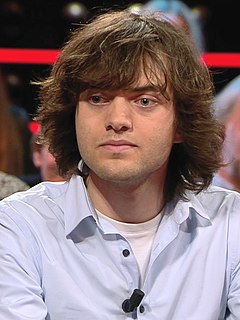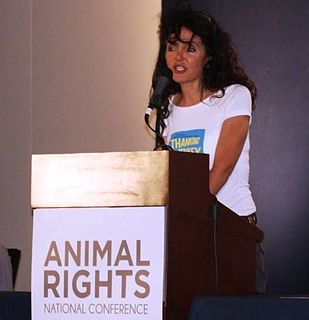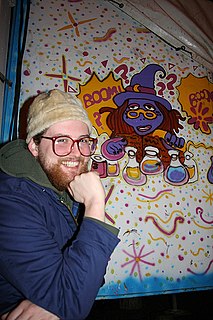A Quote by Boyan Slat
About once a month, a vessel visits each of these clean-up systems, almost like a garbage truck of the ocean, would bring the plastic back to shore where it would then be processed and recycled into new products that we would then sell, at a premium, of course, because we could sell it as being made out of ocean plastic.
Related Quotes
You go to a beach, you see a lot of plastic. It's out of the ocean, it stays out of the ocean, so that's good. But the thing is that in this Great Pacific garbage patch, this area twice the size of Texas, there's simply no coastlines to collect plastic. So the idea is to have these very long floating barriers.
When I see vegan food sold in single-use plastic containers, I get frustrated knowing that plastic is not really recycled; it is down-cycled to less and less reusable grades, and too much of it eventually ends up in the ocean - where it kills animals. Caring for animals means caring for the environment they live in, and vice versa.
Most artists are making as much money now as they could have made... in the heyday of Def Jam [when the] Beastie Boys would sell 10 million records or DMX would sell 6 or 7 million records. Those records are one thing, but then all the other ways to exploit the emotional relationship between artist and community is so much greater that I would guess that they're making as much or more money than they could have ever made.
It's hard not to sell out because once, you know, I grew up with working-class parents who definitely, definitely would be disappointed if I didn't take particular jobs being like, "What are you talking about? I would have worked years for that money in like, actual physical labor." So there's a privilege to not selling out. You already have to be in a position where you can look at that money and not care about it.
Why are atoms so small? ... Many examples have been devised to bring this fact home to an audience, none of them more impressive than the one used by Lord Kelvin: Suppose that you could mark the molecules in a glass of water, then pour the contents of the glass into the ocean and stir the latter thoroughly so as to distribute the marked molecules uniformly throughout the seven seas; if you then took a glass of water anywhere out of the ocean, you would find in it about a hundred of your marked molecules.
I had a lot of great lakes of ignorance that I was up against, I would write what I knew in almost like islands that were rising up out of the oceans. Then I would take time off and read, sometimes for months, then I would write more of what I knew, and saw what I could see, as much as the story as I could see. And then at a certain point I had to write out what I thought was the plot because it was so hard to keep it all together in my head. And then I started to write in a more linear way.
Suppose that you could mark the molecules in a glass of water; then pour the contents of the glass into the ocean and stir the latter throughly so as to distribute the marked molecules uniformly throughout the seven seas; if then you took a glass of water anywhere out of the ocean, you would find in it about a hundred of your marked molecules.





























